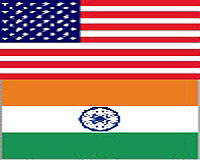| . |  |
. |
Algiers, Algeria (UPI) Mar 16, 2009 Russian arms sales to North Africa have increased significantly, the Stockholm International Peace Research Institute said, with energy-rich Algeria leading the pack. Moscow is eyeing Libya, like Algeria a Cold War client of Moscow, which is up for some big-ticket contracts for combat aircraft, helicopters and warships. SIPRI's annual report on global arms transfers, issued Monday, said a large percentage of the Russian sales to the Maghreb comprised combat aircraft -- 27 percent of the volume in 2005-09. "Orders and deliveries of these potentially destabilizing weapons systems have led to arms race concerns in the Middle East and North Africa," the report said. That was also true, it pointed out, of Latin America, South Asia and Southeast Asia. Paul Horton, the arms expert who oversaw the report, said resource-rich states were setting the trend of building up their inventories of combat aircraft. "Neighboring rivals have reacted to these acquisitions with orders of their own," he said. "One can question whether this is an appropriate allocation of resources in regions with high levels of poverty." Algeria made it onto the list of the top 10 arms importers for the first time and was ranked ninth, up from 18th. SIPRI's report indicated that despite two years of intense global economic turbulence, which is far from over, the arms trade has flourished. The United States held onto its position as the world's leading arms exporter with 30 percent of the total, followed by Russia with 23 percent, Germany 11 percent and France 8 percent. SIPRI data indicates Algeria, Libya, Morocco and Tunisia accounted for around 3 percent of global arms imports in 2005-09. However, the actual volume of major conventional weapons delivered to North Africa increased by 62 percent in comparison to 2000-04. Algeria accounted for 89 percent of the arms transfers to North Africa but neighboring Morocco, with whom it has long been at odds over the disputed Western Sahara, also placed significant orders. That triggered concerns that they were locked in an arms race that could destabilize the region, which is a major energy supplier to the European Union. This led to speculation that Russia would be able to capitalize on the legacy of the Soviet Union, which was the main arms supplier of several Middle Eastern states, including Algeria, Syria, Yemen, Sudan and Iraq, as well as Egypt until 1977. That seems to be the case, since shifting from one military supplier to another is a major undertaking that involves massive retraining of personnel, from maintenance to operations, and makes large amounts of weaponry and support equipment redundant. Moscow accelerated the process in recent years by writing off hefty Soviet era military debts for countries such as Algeria, Libya and Syria to boost its arms sales, part of Russia's drive to restore its influence in region. Russian Prime Minister Vladimir Putin, when he was president, wrote off $7.4 billion owed by Algeria and $4.5 billion by Libya to the Soviet Union. Moscow's success in recent years rests largely with a $7.5 billion arms deal with Algeria in March 2006, signed after the debt cancellation. That included 28 Sukhoi Su-30MKLA strike aircraft. But Algiers appears to be looking to France, Germany and Britain for four frigates as well as up to 100 helicopters for border security. So Libya is where Moscow is hoping to score next. But Tripoli has still to place any major orders for Russians arms although it is in the market for upgrading just about every sector of its long-neglected armed forces. There were reports in the Russian media in January that Tripoli was going to order Russian arms worth $2 billion-$4 billion -- 12-15 multi-role Su-25 strike jets, four Su-30s and six Yak-130 training aircraft, the S300-PMU2 air-defense system and warships. These proved to be premature. The Russians expect contracts to be signed this year, even though the United States appears ready to loosen restrictions on arms sales to Libya imposed in the 1970s when it was an international pariah for supporting international terrorism. Morocco, the other main arms buyer in the region, is a longtime American ally and has traditionally bought from the United States. This was the case in 2008, when Morocco signed up for arms worth $2.4 billion from the United States. That included an $841.9 million contract for 24 Lockheed Martin F-16C Block 50/52 strike jets.
Share This Article With Planet Earth
Related Links Learn about the Superpowers of the 21st Century at SpaceWar.com Learn about nuclear weapons doctrine and defense at SpaceWar.com
 Walker's World: Obama is losing India
Walker's World: Obama is losing IndiaWashington (UPI) Mar 15, 2009 The Obama administration is trying to play catch-up in its relations with the country that could become its most important long-term ally. But it may be leaving it too late, after India last week agreed a $7 billion deal in arms, nuclear reactors and space technology with Russia. India's strategic importance can hardly be exaggerated. More than just the other Asian economic giant after ... read more |
|
| The content herein, unless otherwise known to be public domain, are Copyright 1995-2010 - SpaceDaily. AFP and UPI Wire Stories are copyright Agence France-Presse and United Press International. ESA Portal Reports are copyright European Space Agency. All NASA sourced material is public domain. Additional copyrights may apply in whole or part to other bona fide parties. Advertising does not imply endorsement,agreement or approval of any opinions, statements or information provided by SpaceDaily on any Web page published or hosted by SpaceDaily. Privacy Statement |